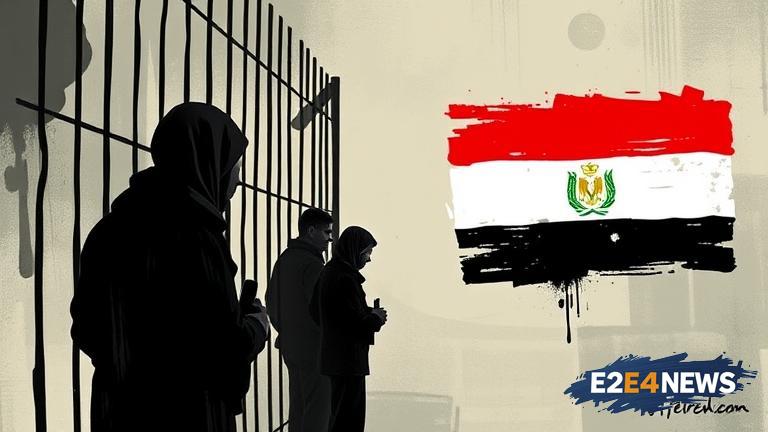Human rights organizations have urged the Egyptian government to reform its detention practices, citing concerns over the use of a rotation practice that facilitates prolonged arbitrary detentions. The practice, which involves transferring detainees between different prisons and detention centers, makes it difficult for families and lawyers to track their whereabouts and undermines their right to a fair trial. The call to reform comes amid growing concerns over human rights abuses in Egypt, where thousands of people have been detained without trial or charge. The rotation practice has been criticized for allowing the authorities to circumvent legal safeguards and hold detainees for extended periods without due process. Human rights groups have documented numerous cases of detainees being held incommunicado, without access to medical care or legal representation. The Egyptian government has been accused of using the rotation practice to silence dissent and crush opposition, with many detainees being held on trumped-up charges or without charge at all. The practice has also been linked to reports of torture and ill-treatment, with detainees being subjected to physical and psychological abuse. The use of rotation practice has been condemned by human rights organizations, including Amnesty International and Human Rights Watch, which have called on the Egyptian government to end the practice and ensure that all detainees are treated in accordance with international human rights law. The Egyptian government has been criticized for its failure to investigate reports of human rights abuses and to hold those responsible to account. The call to reform detention practices comes amid growing international pressure on the Egyptian government to improve its human rights record. The European Union and other international partners have expressed concerns over the use of arbitrary detention and the mistreatment of detainees in Egypt. The Egyptian government has been urged to take concrete steps to address these concerns, including by ending the rotation practice and ensuring that all detainees are treated with dignity and respect. The use of rotation practice has been linked to a broader pattern of human rights abuses in Egypt, including the use of enforced disappearance and torture. Human rights groups have documented numerous cases of detainees being disappeared, with their families and lawyers being denied information about their whereabouts. The Egyptian government has been accused of using enforced disappearance as a tool of repression, with many detainees being held in secret detention centers without access to medical care or legal representation. The practice of rotation has also been linked to reports of deaths in custody, with detainees being denied medical care and dying as a result of neglect or mistreatment. The Egyptian government has been urged to investigate all reports of human rights abuses and to hold those responsible to account. The call to reform detention practices comes amid growing concerns over the impact of human rights abuses on the rule of law and the stability of the country. The use of arbitrary detention and the mistreatment of detainees has been linked to a broader pattern of instability and unrest, with many Egyptians expressing frustration and anger over the government’s failure to respect human rights. The Egyptian government has been urged to take concrete steps to address these concerns, including by ending the rotation practice and ensuring that all detainees are treated with dignity and respect. The international community has been called upon to support efforts to promote human rights and the rule of law in Egypt, including by providing technical assistance and support to human rights organizations. The use of rotation practice has been condemned as a violation of international human rights law, including the International Covenant on Civil and Political Rights and the African Charter on Human and Peoples’ Rights. The Egyptian government has been urged to respect its international obligations and to ensure that all detainees are treated in accordance with international human rights law.
